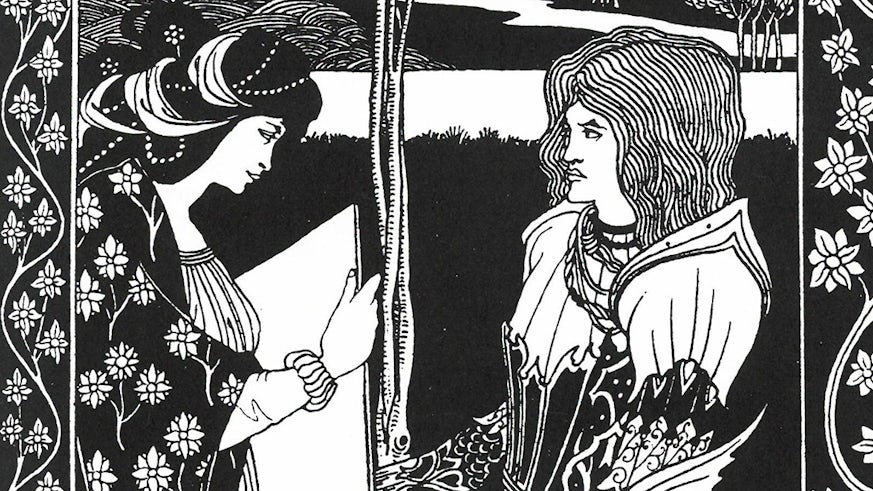Romance in the Middle Ages
29 January 2019

English Literature scholar co-edits two new collections looking afresh at landmark medieval works
English Literature scholar Dr Megan Leitch has taken a lead on two major new collaborative projects offering fresh perspectives on medieval romances, or narratives of chivalric adventure and love.
Dr Leitch also recently hosted an international conference focusing on the study of medieval romance, the most popular secular literary genre during the later Middle Ages.
A New Companion to Malory provides a timely update to the influential 1996 Companion on Morte Darthur, informed by the latest textual, cultural, literary and historical advances and offering twenty-first century critical approaches. Celebrating the 550th anniversary of this now-canonical text, the New Companion provides a contemporary guide to match Malory’s centrality to the university curriculum and to critical discourse.
Co-edited with Cory James Rushton (Associate Professor at St Francis Xavier University), the companion features a new series of essays from 16 international experts in the field including Dr Leitch and also Cardiff’s Dr Rob Gossedge.
Written by ‘knight prisoner’ Thomas Malory from his prison cell in 1469, shortly before his death, the Morte Darthur is the quintessential 15th-century retelling of the legend of King Arthur, the Knights of the Round Table and the quest for the Holy Grail. It is an innovative adaptation and synthesis of a variety of earlier Arthurian sources, and it has influenced Arthurian literature and culture for centuries since it was published by the printer William Caxton in 1485 during the Wars of the Roses.
The second book,Romance Rewritten: The Evolution of Middle English Romance, offers new approaches to the everlasting malleability and transformation of medieval romances in a series of essays from international scholars.
This collection is innovative in bringing together popular, anonymous English and courtly romances, and embracing the works of Chaucer and Arthurian romance, which are rarely treated together. The chapters ask questions such as: just how comfortable, and how flexible, are the romance genre’s nature and aims? How were Middle English romances rewritten to accommodate contemporary concerns and generic expectations? What can attention to narrative techniques and conventions reveal about the reassurances romances offer, or the questions they ask? How do romances' central concerns with secular ideals and conduct intersect with spiritual priorities? And how are romances transformed or received in later periods?
Co-edited by Dr Leitch and Professor Elizabeth Archibald and Professor Corinne Saunders (Durham University), the collection combines diverse expert contributions from 15 scholars, and is also a tribute to the significance and influence of the seminal work of Professor Helen Cooper on romance.
Author of Romancing Treason: The Literature of the Wars of the Roses (Oxford University Press, 2015), Dr Megan Leitch is Senior Lecturer in English Literature in the School of English, Communication and Philosophy.
A member of the Medieval and Early Modern Research Initiative, Dr Leitch teaches English Literature at both undergraduate and postgraduate level. Her research interests also include the medical humanities and continuities between medieval and early modern English literature.
A New Companion to Malory and Romance Rewritten: The Evolution of Middle English Romance are both published by Boydell & Brewer.

